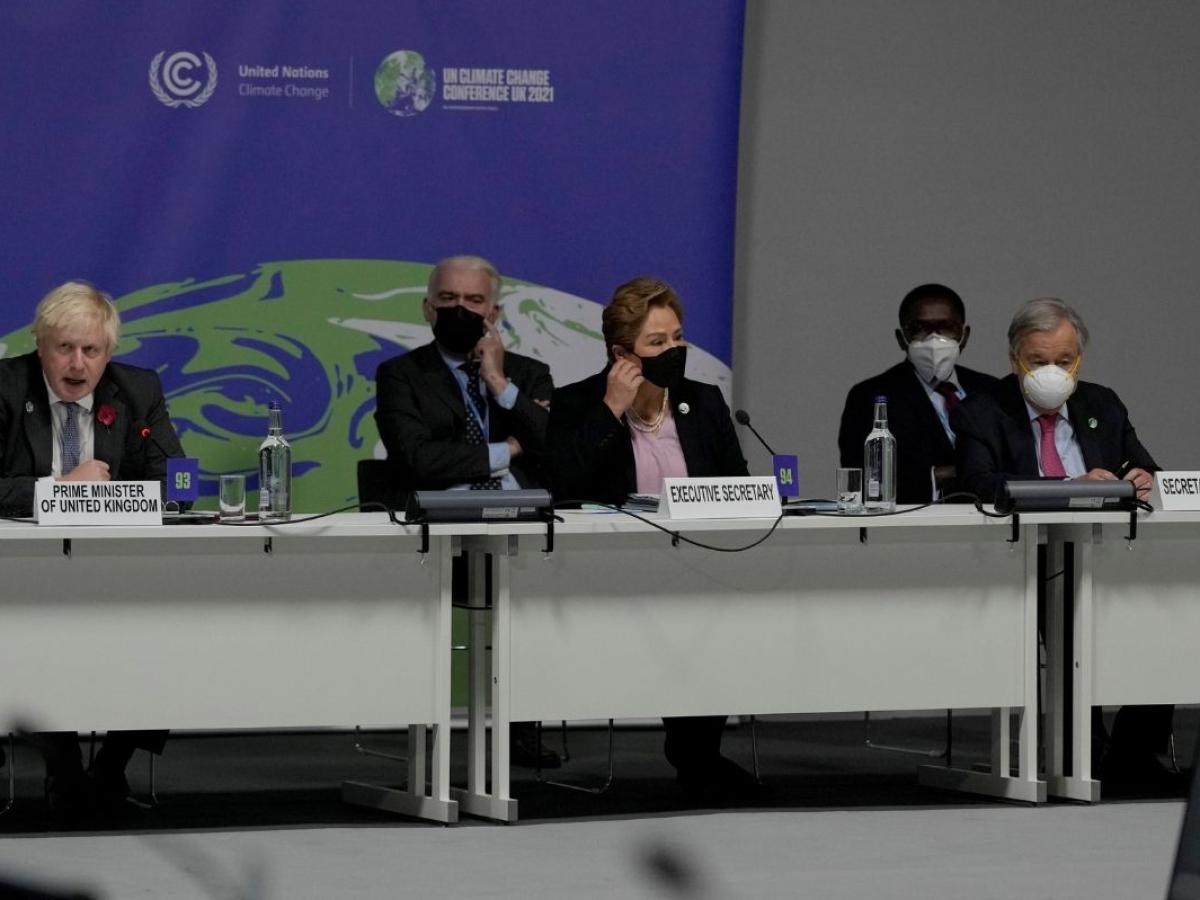COP29 in Crisis: Climate Finance Draft Rejected

The COP29 presidency, however, said the draft was far from final and invited countries to submit bridging proposals.
The next version, due Thursday night, will be leaner and packed with numbers aimed at finding the sweet spot for consensus, it said in a statement.
The text shows that developed countries are still dodging a key question: how much climate finance are they ready to provide developing countries every year starting in 2025?
The developing world has repeatedly said it needs at least USD 1.3 trillion annually -- 13 times the USD 100 billion pledged in 2009 -- to meet the growing challenges.
Although developed countries have yet to officially propose a figure, their negotiators indicated that European Union nations were discussing a global climate finance target of USD 200 billion to USD 300 billion per year.
However, in the words of Colombian Environment Minister Susana Muhamad, the critical objective of this COP is, right now, an "empty placeholder".
The problem is not that developed countries lack money; the problem is that they are playing geopolitics, she said in an impassioned speech, drawing applause from a plenary full of negotiators, observers, and journalists.
India said that without adequate support in terms of finance, technology, and capacity building, the fight against climate change would be severely impacted.
Environment and Climate Secretary Leena Nandan, who is leading the Indian delegation at COP29, said the country would not accept any effort by developed countries to shift the focus away from climate finance for developing nations and place it on emissions reductions in the Global South.
The G77, the largest negotiating bloc at the UN climate talks with over 130 developing nations, said they have been very clear that "we should not leave Baku without a quantum".
Adonia Ayebare, the G77 chair, denounced the developed countries' attempt to turn the climate finance package into a global investment goal that would draw funding from a variety of sources, including governments, private companies and investors.
"We are disappointed that the draft text doesn't even specify a quantum for provisional mobilization," said Bolivia's Diego Pacheco, on behalf of Like-Minded Developing Countries, which includes India.
African Group of Negotiators chair Ali Mohamed said they were deeply concerned by the "lack of mention of quantum". "This quantum is the main mandate for which we are here at COP29."
European Union's climate chief Wopke Hoekstra called the draft "imbalanced, unworkable, and not acceptable".
China said the current text contained many elements that are neither satisfactory nor acceptable to it. "Yet, we call on all parties to meet each other halfway."
Pakistan, still reeling from the aftermath of the devastating 2022 floods, said an ambitious outcome on the climate finance package was particularly important for them, but the text lacked "concrete numbers on the quantum.
Bangladesh said it had hoped to be closer to a meaningful convergence. "Sadly, we are not."
At the heart of this year's UN climate talks is the new climate finance goal or NCQG aimed at helping developing countries cut emissions and cope with the mounting impacts of climate change.
Developing nations argue they need at least USD 1.3 trillion a year to keep up with the escalating challenges.
But trust is in short supply. Developed nations only hit the USD 100 billion target in 2022 -- two years late -- and a hefty 70 per cent of those funds came as loans, further straining nations already reeling from climate disasters.
Now, developing nations are demanding that most of the funding come straight from developed countries' public coffers. They reject the idea of leaning on the private sector, which they say is more interested in profit than accountability.
Meanwhile, the US and EU are pushing for a more expansive global investment goal that draws from public, private, domestic, and international sources. They are also urging wealthier countries like China and Gulf states -- classified as developing in 1992 -- to chip in, pointing to their more prosperous status today.
Developing nations see this as a clever move to avoid responsibility for past emissions by shifting the burden to those who industrialized more recently.
You May Like To Read
MORE NEWS
The FSSAI has reclassified packaged drinking water as a high-risk food category,...
Sebi has banned 'Baap of Chart' and six others for one year for providing unregistered...
The RBI has directed banks to reduce inoperative accounts urgently, citing concerns...
Mphasis F1 Foundation and The/Nudge Institute announce a competition with a prize purse...
Andhra Pradesh government and ISB collaborate to empower women and revitalize forest...
Torrent Power has opened a qualified institutional placement (QIP) of shares at a floor...
Promoters of Home First Finance and Warburg Pincus affiliate divest 19.6% stake in the...
Kerala has attracted Rs 44,000 crore investment from domestic entrepreneurs in the last...
Telangana Chief Minister A Revanth Reddy inaugurated Hindustan Coca-Cola Beverages' new...
Analysts expect the Reserve Bank of India to keep rates unchanged on Friday, but cut...